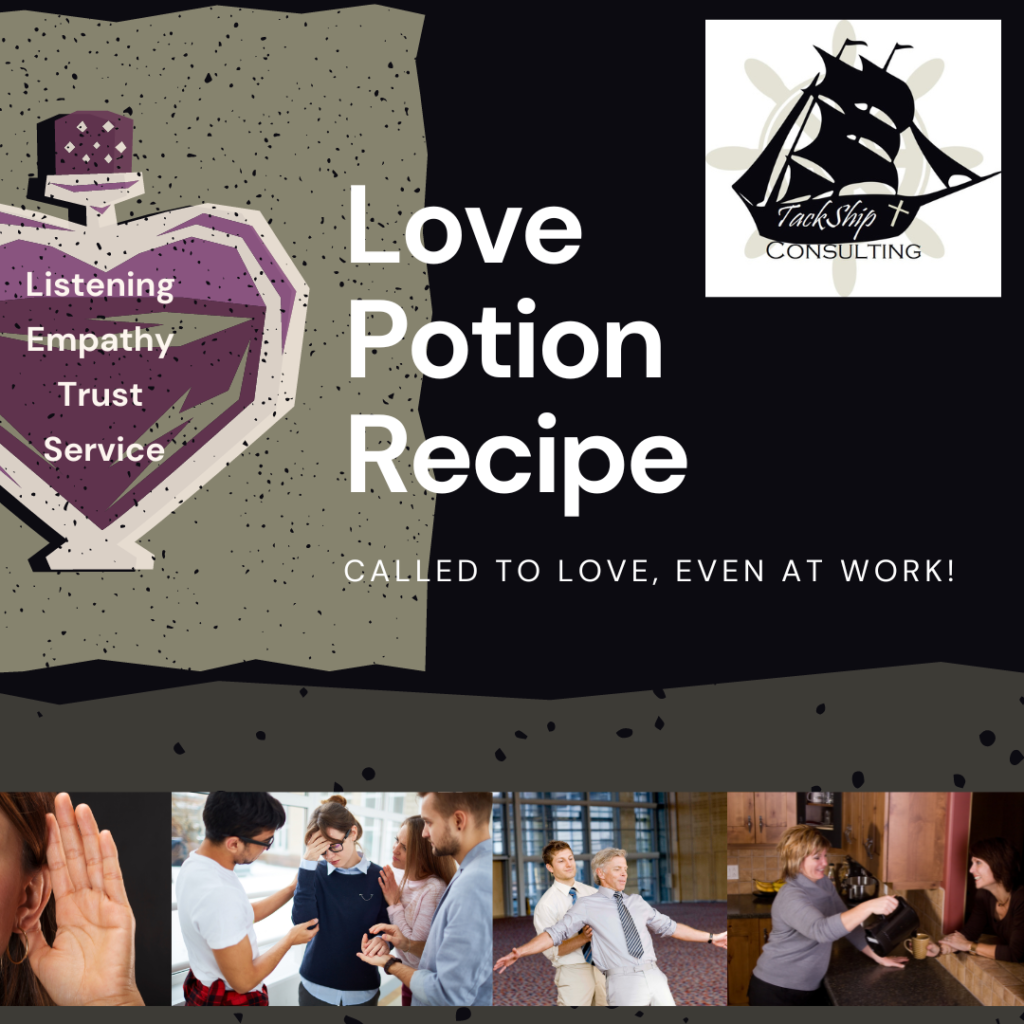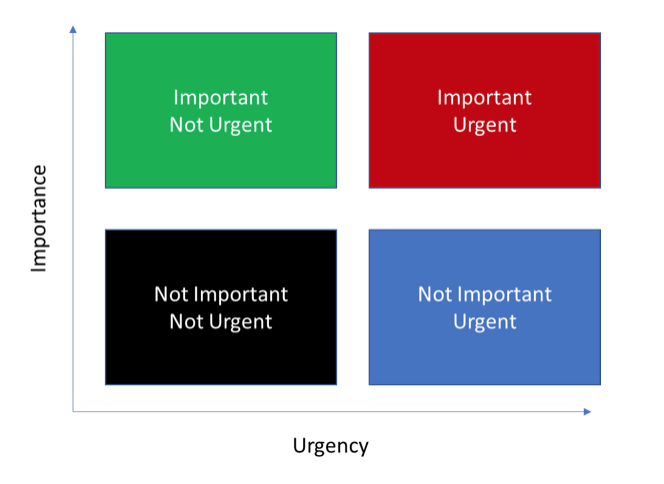
I am a Christian. I think that our enthusiasm is a place where we can find joy and calling, but there are also some things that we can find in the Bible, including
- The Ten Commandments (Deuteronomy 5:7-21)
- ‘Love the Lord your God with all your heart and with all your soul and with all your strength and with all your mind’(Deuteronomy 6:5)
- ‘Love your neighbor as yourself.’ (Leviticus 19:18, Luke 10:27, Matthew 22:37-40)
- The Golden Rule (Luke 6:31, Matthew 7:12), and the Great Commission (Matthew 28:19-20) that need to be considered.
As my friend Sam Martinez likes to point out, it is both Old (Job 24:3, Psalms 68:5, Isaiah 1:17) and New Testament (James 1:27) teaching to do a better job at taking care of orphans and widows. Which I can sum up as God telling me “Love God, Love others, especially the less fortunate, and make disciples who are baptized and obey the Word of God.”
Loving God, to me means that we pursue our calling with our gifts, our passions, and experience, as well as loving people that He has put into our path, our neighbors.
But what does it mean to love our neighbors (including our co-workers, customers, vendors, employees, etc.)? I believe that there are a few things that we can do. These four things are foundational in loving our neighbors, in the agape, or selfless sense of the word.
- Listen – as Stephen Covey put it in 7 Habits of Highly Effective People, “listen first to understand” rather than listening to respond. Listening is a great way to show people love, including our spouses, children, parents, as well as those we work with.
- Empathy – derived from listening comes empathy. Empathy is really trying to put yourself into the shoes of those around you. Can you listen to really feel someone’s pain as they tell you about some tragedy in their life? It is not easy, but focusing on someone else’s hurt, can help them better process it and help them get to the otherside of something which may be blocking their performance.
- Trust – In a culture of love, you need to be able to trust people. Trust them to do the task they are assigned, trust that they will do their best, and trust that they are oriented with your same mission. They also want to trust you as a coworker, in that you have their best interests at heart, that you will take care of them, and that you are invested in their development and success. We also need to be able to trust that our co-workers can deal with bad news. If we do trust that we are all doing our best and trying to acheive, then if something goes wrong, we may be better able to recover.
- Serve – Serving those your work for, with, and by, is also sometimes a difficult thing to do, but is another reminder that love comes from serving, and not expecting to be served. How much better could are relationships be if we took the time to serve the needs of those around us.
For another few ideas, please check out this blog post on (High Performing Cultures)
In this world of coaching and development, there are many books, articles, podcasts, and other content. I think that many of them say the same thing in different ways. Recently, I heard a story that Ken Blanchard had written a book, called the 1-Minute Manager, and was marketing the book on a Christian TV show. The tenets of this book called for managers to do goal setting in one-minute increments, to get out and catch people doing things right and praise them, then similarly, setting clear expectations and doing any reprimanding in the space of a minute. The host of the show then mentioned to Ken that there was one leader who was doing this long ago, (even longer than the 30 years ago the book was first published!) and that was Jesus. Jesus spent his time helping to set goals for people could quickly praise people, and quickly reprimand people, but leave them feeling valued and seen in a way that kept them from wanting to repeat their mistakes (sins) again. Ken was then inspired to right another book with Phil Hodges, called Lead Like Jesus. Ken has said, “The more I read the Bible, the more evident it becomes that everything I have ever taught or written about effective leadership over the past 25 years, Jesus did to perfection. He is simply the greatest leadership role model of all time.”
So taking that Jesus is the greatest leadership role model in history, and He is essentially all about Love, and he calls us to Love, then I think that is definitely a calling on my life.
This then begs the question: Do we need any other books but the Bible to teach us how to grow, how to be, how to lead? Maybe not, but I also think that some of these concepts may not be as clear to people based on translations, based on contextual understanding, etc. Every time I read passages in the Bible I feel like I am learning something new, based on the context and lens I am looking at it through. People who are writing books, like Ken Blanchard, Dr. John Townsend, Henry Cloud, and Rick Warren, all are helping to put context around these timeless principles, and hopefully they are reaching people so that they can find calling, purpose, and fulfillment in their lives. Interestingly, I also searched for “love in business” on google and found a few other references on the benefits of building love into your business, and these I don’t actually know if they are Christians or not, and some have written books on the subject:
https://real-leaders.com/why-love-is-important-in-business/
https://hbr.org/2022/04/marcus-buckingham-why-love-is-the-key-to-career-success
A scholarly article on Love in Business:
In summary, Love is a calling, a need, and an action that we can take to make a better world, whether you are commanded as a Christian, or it just makes good business sense, do more with Love.











